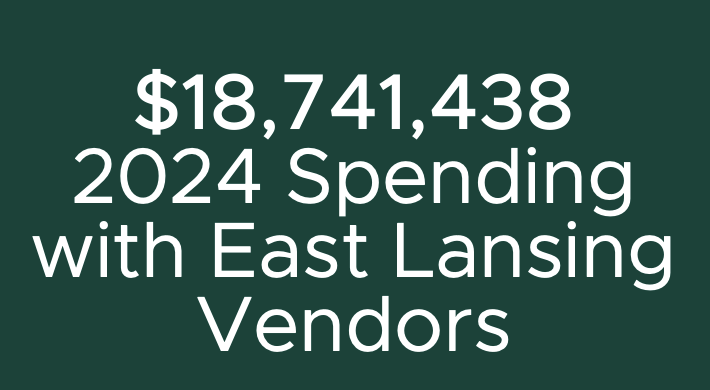City of East Lansing
Michigan State University plays a critical role in the growth and vitality of the mid-Michigan region, with a particularly strong and enduring partnership with the City of East Lansing. This collaboration is essential to fostering a vibrant, dynamic community that supports employees, students and residents. MSU’s presence drives economic growth, attracts talent, and creates opportunities through cultural, educational, and recreational programs. In turn, City of East Lansing provides a welcoming environment that enhances the student experience and offers key resources and amenities for faculty and staff. Together, MSU and East Lansing continue to build a thriving community that exemplifies innovation, shared values, and long-term development.



28,450 City of East Lansing Students
On campus:
- 16,231 students in residents halls
- 1,139 students in campus apartments
Off campus:
- 11,167 residing in the City of East Lansing
MSU provides a built-in customer base that supports local businesses and creates steady demand for housing, dining, and recreational services in East Lansing. This concentration of students also draws families and visitors to the area, strengthens the city’s economy, and cultivates future residents.
MSUvote is dedicated to empowering students to participate in local, state, and federal elections by fostering civic engagement on campus. Through partnerships with local clerks and the Michigan Secretary of State’s Office, MSU ensures that voting is accessible and streamlined for students. This effort encourages informed participation in City of East Lansing elections and beyond, helping students shape the future of their communities. Learn more at MSUvote.
MSU was named a “Gold Campus” for receiving a turnout rate higher than 40% — with turnout in 2022 reaching 7% higher than the national average for college campuses.
Other EL Partnerships
other data, etc

